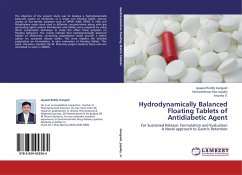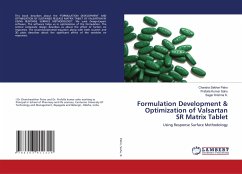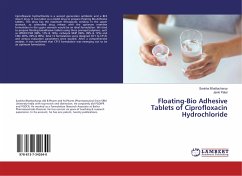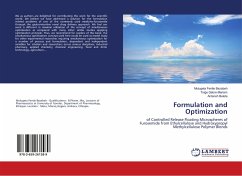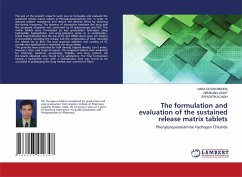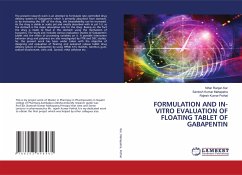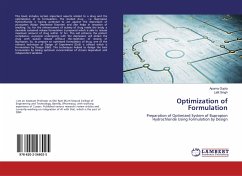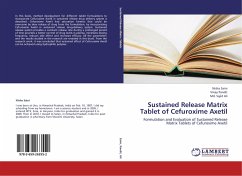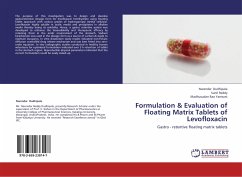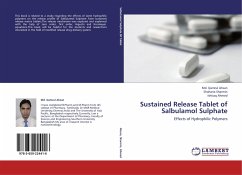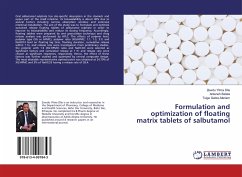
Formulation and optimization of floating matrix tablets of salbutamol
Versandkostenfrei!
Versandfertig in 6-10 Tagen
27,99 €
inkl. MwSt.

PAYBACK Punkte
14 °P sammeln!
Oral salbutamol sulphate has site-specific absorption in the stomach and upper part of the small intestine. Its bioavailability is about 40% due to several factors including narrow absorption window and extensive intestinal metabolism. The aim of this study was to formulate and optimize sustained release floating tablets of salbutamol sulphate in order to improve its bioavailability and reduce its dosing frequency. Accordingly, floating tablets were prepared by wet granulation technique and drug release analysis was performed by HPLC. The effects of polymer level, polymer type (XG or HPMC), po...
Oral salbutamol sulphate has site-specific absorption in the stomach and upper part of the small intestine. Its bioavailability is about 40% due to several factors including narrow absorption window and extensive intestinal metabolism. The aim of this study was to formulate and optimize sustained release floating tablets of salbutamol sulphate in order to improve its bioavailability and reduce its dosing frequency. Accordingly, floating tablets were prepared by wet granulation technique and drug release analysis was performed by HPLC. The effects of polymer level, polymer type (XG or HPMC), polymer ratio (XG/HPMC; 1:1, 1:3, 3:1) and NaHCO3 level on floating lag time, floating duration, cumulative release within 1 hr, and release rate were investigated. From preliminary studies, the polymer with 1:3 (XG:HPMC) ratio and NaHCO3 were selected as significant factors and cumulative release at 1 hr and release rate were chosen as significant responses, respectively. Hence, the effect ofthese factors was further studied and optimized by central composite design. The most desirable representative optimal point was obtained at 24.79% of XG/HPMC and 5% of NaHCO3 having a release rate of 28.4.



